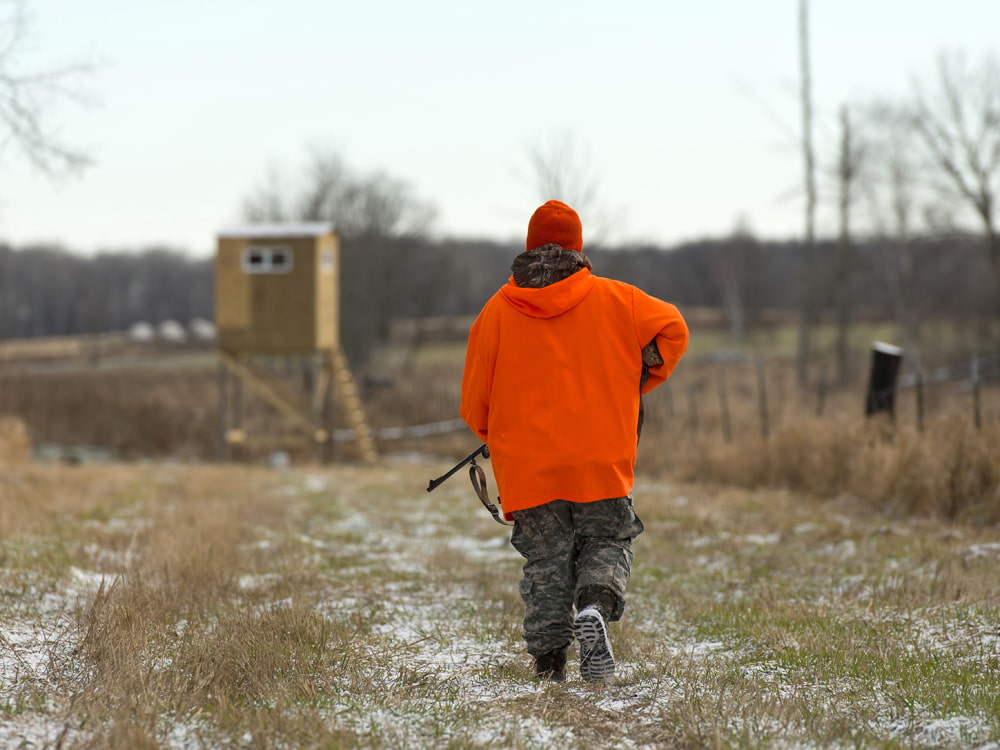In the state of Michigan, hunting is a cherished activity enjoyed by many. However, like many other states, Michigan has a set of stringent regulations to ensure the safety and ethics of hunting practices. One such regulation is the requirement for a hunting license, which is strictly enforced by the Michigan Department of Natural Resources.
Michigan Hunting Laws

Michigan boasts a rich hunting tradition, regulated by laws aimed at promoting safety, ethical hunting practices, and wildlife conservation. Central to Michigan’s hunting laws is the requirement for individuals born on or after January 1, 1961, to complete a Hunter Education Course to secure a Hunter Safety Certificate before applying for a hunting license. This certification, achievable through classroom-based or online courses, validates a hunter’s competency in safe and ethical hunting practices. Furthermore, Michigan necessitates a Hunting License for hunting any game animal within the state, with the type of license varying based on the game and the hunter’s age. There’s an annual base license required for all, with additional licenses needed for hunting specific game animals. The entire process typically takes about 4-6 hours and is crucial for promoting responsible hunting.
The Michigan hunting seasons are meticulously structured, with dates potentially changing annually per game animal, influenced by factors such as animal populations and hunter participation. These seasons are further delineated by regions or “zones,” and categorized by the type of firearm used – archery, firearms, or muzzleloader. For instance, deer season typically kicks off in mid-September and extends through January, with various sub-seasons for different firearms and deer types. Likewise, hunting seasons for other game animals like bear, elk, turkey, small game, and waterfowl are organized with specified dates, and in some cases, hunters are required to submit applications for a draw to obtain a hunting license. The meticulous organization of hunting seasons and the necessity for proper licensing underscore the state’s commitment to maintaining a safe and ethically responsible hunting environment.
The legal implications of hunting without a license in Michigan are serious and could lead to substantial penalties. Although the exact penalties were not detailed in the references, it is vital to adhere to the state’s hunting regulations to avoid legal repercussions.
Penalties for Hunting Violations
| Violation | Penalty |
|---|---|
| Violation of permits, season, bag limits, shooting hours, and methods of taking game | Fine ranging from $50 to $500 and/or jail time up to 90 days |
| Illegal taking/possession of deer, bear, or wild turkey | Fine between $200 and $1,000 with 5 to 90 days in jail. Restitution of $1,500 for bear, $1,000 for deer/turkey. License revocation for the year of conviction plus the next three years |
| Illegal use of artificial light with bow and arrow, crossbow, or firearm | Fine of $100 to $500 and/or up to 90 days in jail. License revocation for the year of conviction plus the next year |
| Carrying a firearm while under the influence of alcohol or drugs | $500 fine and/or jail time up to 93 days |
| Multiple offenses: three convictions within the preceding five years | Fine ranging from $500 to $2,000 and jail time of 10 to 180 days |
Michigan Hunting Seasons
The dynamics of hunting seasons in Michigan are defined by an array of factors including the population of game animals and levels of hunter engagement. These seasons are meticulously organized and may shift annually, distinguishing between various regions or “zones” and types of firearms such as archery, traditional firearms, and muzzleloader or “primitive” firearms. It’s incumbent upon hunters to acquaint themselves with the specific dates and hunting hours operative in their respective regions, counties, or zones.
WHITE-TAILED DEER
The deer hunting season in Michigan generally unfolds from mid-September to January, subject to variations across zones, firearm categories, and deer types (antlered or antlerless). The span of the season encompasses early antlerless firearm season, youth and disabilities seasons, archery, regular firearms, muzzleloading, and late antlerless firearms seasons. The length of each season could range from a few days to a week or more, contingent on the deer and firearm type.
BEAR
The bear hunting seasons exhibit substantial variance within Michigan, segmented by Bear Management Units (BMU). Each BMU prescribes up to three distinct season date ranges, with a capped number of licenses for each. Given the limited license availability, a draw system is employed to select eligible hunters, who must submit a filled-out application to partake in the draw.
ELK
Elk hunting seasons traditionally commence in September and conclude in mid-January, delineated by Elk Management Units. Like bear licenses, elk licenses are finite and allocated through a draw, necessitating a complete application submission from interested hunters.
TURKEY
The fall turkey hunting season usually kicks off in September and lasts until mid-November. The specific dates and limits are determined by the hunting locale (Turkey Hunt Unit). Hunters can vie for a limited quota license, distributed via a draw.
SMALL GAME
Michigan’s small game roster features species like squirrel, pheasant, quail, grouse, rabbit, hare, and woodcock, to name a few. The season dates and bag limits fluctuate based on the game type and hunting vicinity. An annual digest, courtesy of the Michigan DNR, furnishes small game hunters with crucial details on season dates, bag limits, and other pertinent restrictions.
WATERFOWL
Michigan is a haven for waterfowl hunting, hosting species like the American Coot, Canada Goose, along with a variety of ducks, geese, rails, and snipes. The hunting seasons are species and region-specific, providing a diverse hunting experience.
Michigan Hunting Violation Lawyer
If you find yourself facing charges for hunting without a license or other hunting-related violations, seeking the expertise of a seasoned criminal defense lawyer is advisable. They can provide valuable insight into the Michigan hunting laws, help navigate the legal system, and work towards the best possible outcome for your case.




